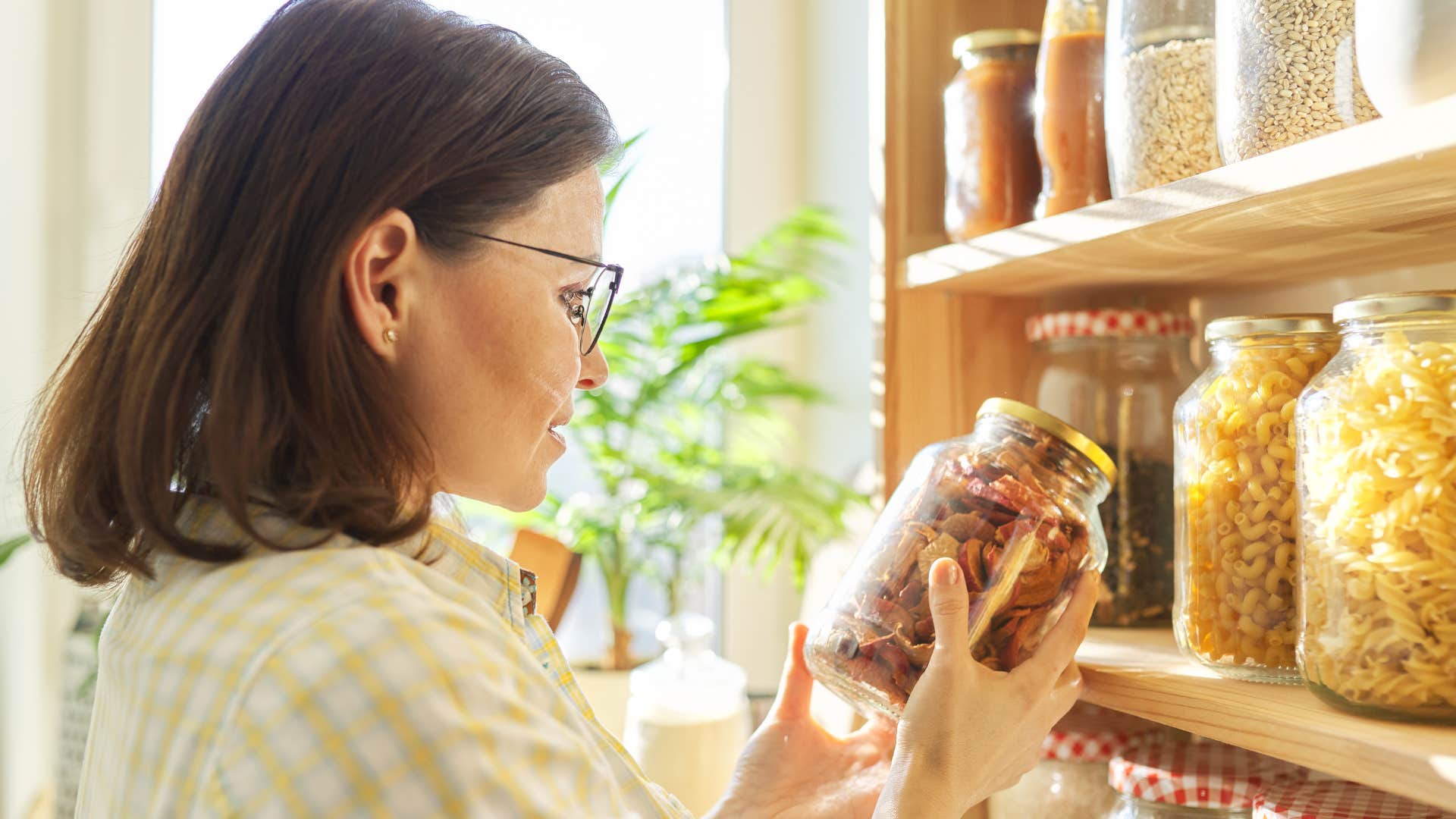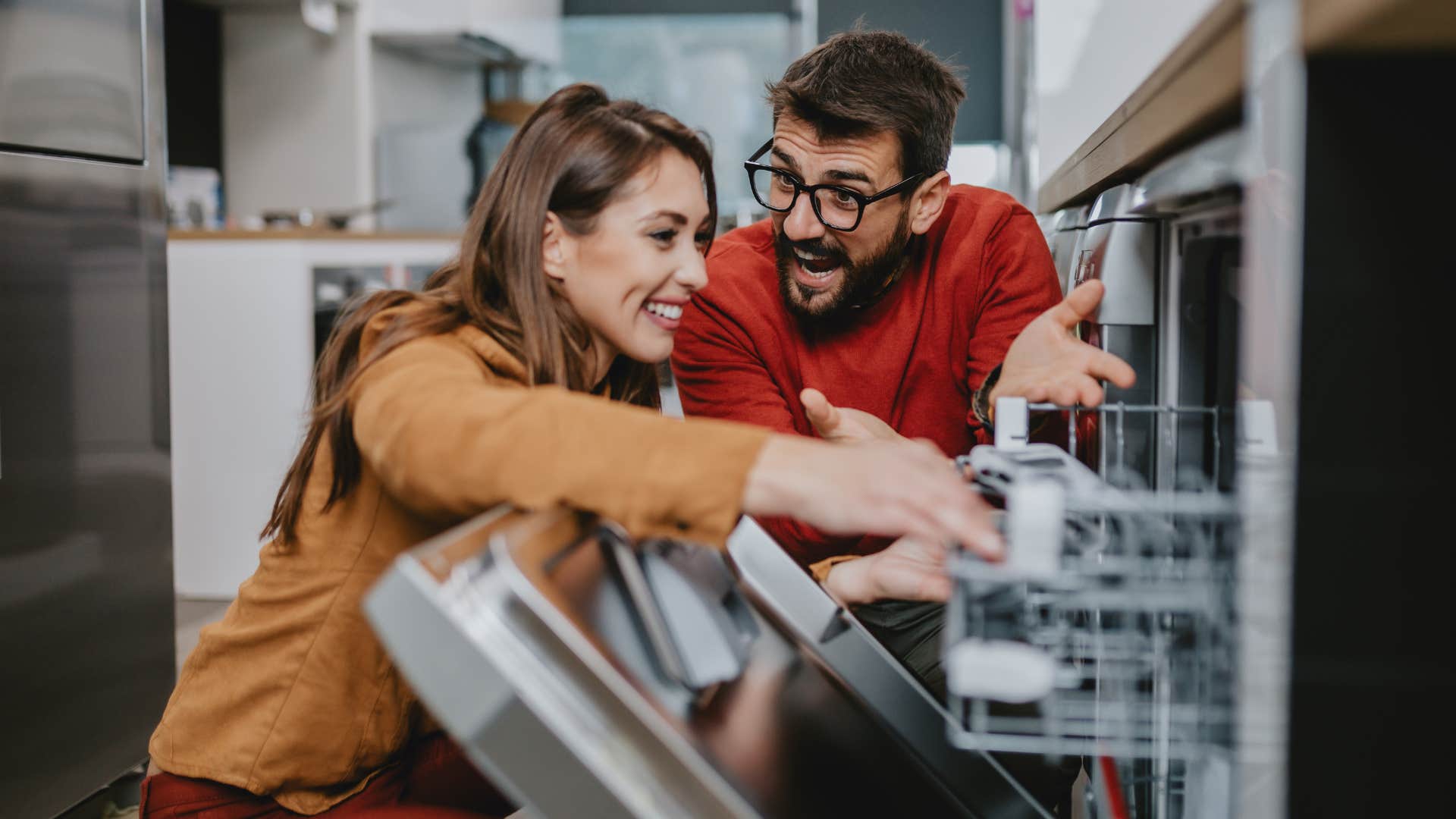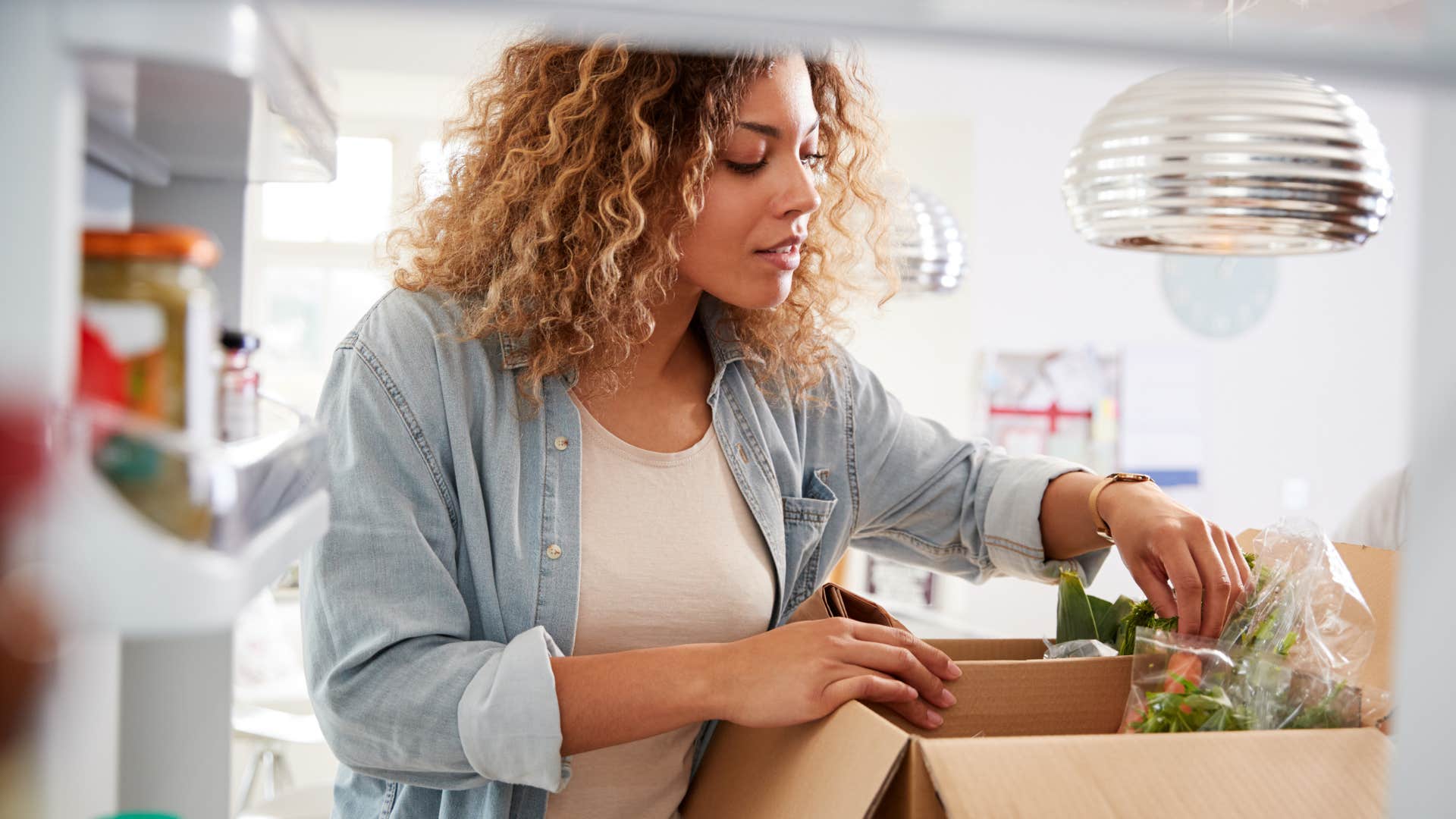11 Brilliant Habits Frugal People Started Doing By Accident But Now Swear By
These are happy money-saving surprises.
 Gyorgy Barna | Shutterstock
Gyorgy Barna | Shutterstock Frugality is largely a mindset that's cultivated from financial insecurity, childhood experiences, or intentionality. While it manifests itself in a number of intentional behaviors and experiences, there are also many brilliant habits frugal people started doing by accident but now swear by to save money and craft more stability in their financial lives.
Whether it's monthly habits like paying bills or grocery shopping, going out with loved ones, or reducing unnecessary spending, many of these habits are niche — prompted by random occurrences, advice, or accidents — but still incredibly helpful for frugal people hoping to conserve their resources and money.
Here are 11 brilliant habits frugal people started doing by accident but now swear by
1. Waiting before making big purchases
 Moon Safari | Shutterstock
Moon Safari | Shutterstock
While engaging in a waiting period — setting 15 or 30 days before buying something — may have been an accident at first, it's now one of the brilliant habits frugal people use to avoid impulsive purchases or overspending on things they don't really need.
According to a study from Frontiers in Psychology, many people who regularly make impulse purchases struggle with emotional turmoil — whether that's a lack of self-esteem, mental health struggles, or more broad experiences of anxiety and chronic stress.
A waiting period helps to take away pressures of financial instant gratification, forcing frugal people to confront these emotions and experiences with truly healthy coping mechanisms, rather than comfort and misguided control from spending.
2. Avoiding waste
 Josep Suria | Shutterstock
Josep Suria | Shutterstock
Even if it was initially an accident — stretching meals with leftovers and putting off groceries until the next paycheck — avoiding waste is still one of the brilliant habits many frugal people do on a daily basis. Even though it's a sustainable and partially eco-friendly behavior, frugal people use it to save money, leveraging their material and money conservationism with environmentally beneficial results.
Whether it's groceries, material things, energy at home, or wasted money on convenience, frugal people are intentional about avoiding financial waste, even if it means spending more effort, energy, or time in their daily lives.
3. Reusing old jars
 VH-studio | Shutterstock
VH-studio | Shutterstock
Instead of buying new food containers and wasting quality jars — from pasta sauce to jelly — frugal people have accidentally gotten into the habit of washing and reusing them. Even if it started from appreciating the quality of one container, now they're saving money on buying Tupperware and food containers.
Even if it's saving them money when they're packing lunches for work, storing leftovers, or sharing food with others, this is one of the brilliant habits frugal people started doing by accident but now swear by in their everyday lives.
4. Using rechargeable electronics
 Dragana Gordic | Shutterstock
Dragana Gordic | Shutterstock
Using rechargeable electronics and appliances instead of battery-operated ones is one of the brilliant habits frugal people started doing by accident but now swear by.
Many people who have accidentally overspent on batteries for things like a head lamp walking their dogs or appliances in their home can save a lot of money by investing in a rechargeable alternative. Yes, these things still take energy to charge, but they can cut back on the pricing of batteries, especially as general prices continue to rise.
5. Only shopping from the sale rack
 Anna Stills | Shutterstock
Anna Stills | Shutterstock
Many frugal people spent years searching for deals and trying to align their shopping lists with what was on the clearance rack, but now, it's one of the brilliant habits they swear by. Whether it's forming meals around discounted or seasonal foods at the grocery store or only buying "new" clothes from the thrift store, they save money by cutting back intentionally on expenses.
Especially considering the majority of people are already overspending on "splurge" purchases to treat themselves, according to a Deloitte consumer report, intentionally only buying things on clearance or when there's a sale is a steadfast way for frugal people to save money.
6. Eating and drinking before leaving
 PeopleImages.com - Yuri A | Shutterstock
PeopleImages.com - Yuri A | Shutterstock
According to a Dole Food Company survey conducted by OnePoll, almost 80% of consumers argue that they've "blown their budget" at the grocery store when they forget to eat before they come. Even though shopping while hungry is a common experience — leading to impulsive purchases and overspending — there's an easy fix.
That's why eating and drinking before they leave the house is one of the brilliant habits frugal people started doing by accident but now swear by. They're not only spending less when they go to the grocery store, they're avoiding overpriced convenience and fast food in other areas of their lives as well.
7. Shopping online without buying anything
 PeopleImages.com - Yuri A | Shutterstock
PeopleImages.com - Yuri A | Shutterstock
Not only are online shopping and fast fashion huge factors in environmental and sustainability issues, they also tend to sabotage individual financial well-being and emotional health. Especially for people seeking instant gratification through spending — to also cope with emotional turmoil — overspending online and yearning for misguided control on shopping apps can perpetuate a cycle of insecurity and anxiety.
However, fighting the pressure to shop online can be difficult, which is why many frugal people still do it, they just don't buy anything. It's one of the brilliant habits frugal people started doing by accident but now swear by — they go onto these platforms, shop, add things to their cart, and then exit out.
Funnily enough, frugal people often still reap the same serotonin and dopamine rushes online shopping sparks for people overspending, without any of the guilt or uncertainty that comes with actually buying the things in their cart.
8. Opening the dishwasher before it's done
 hedgehog94 | Shutterstock
hedgehog94 | Shutterstock
Utility bills are one of the most expensive bills people grapple with every month, but many don't acknowledge the cost-saving habits that could lower that financial burden. Even if it was by accident the first time, things like opening the dishwasher before it's done or air-drying clothes can help to alleviate high utility bills and bring down the costs.
So, even if you do something as simple as opening the dishwasher while your dishes are still wet and letting them air dry, that could save you money consistently from month-to-month.
9. Using instant coffee
 PeopleImages.com - Yuri A | Shutterstock
PeopleImages.com - Yuri A | Shutterstock
According to a survey from Drive Research, the average American is spending nearly $50 monthly on coffee from outside their home, so finding alternatives that lower this cost and provide convenience at home is key for frugal households. Of course, not everyone has the financial freedom to buy an espresso machine or fancy coffee beans, but instant coffee could be a quick fix.
In fact, many people underestimate instant coffee, not realizing how versatile, cheap, and long-lasting it is until they buy it for the first time by accident. Depending on the concentration and blend, it could be an alternative for many out-of-home coffee purchases — from cold brew, to an Americano, and even a fancy latte.
10. Never buying new books
 Daniel Hoz | Shutterstock
Daniel Hoz | Shutterstock
Instead of overspending on new books, frugal people save money by leveraging community resources and secondhand alternatives. Even if it's one of the things they started doing by accident — using library resources or bringing their kids on a class trip — using libraries, thrift stores, and online programs with a library card can encourage people to read without the hefty price tag.
In addition, libraries also serve as community hotspots for many people, helping to mend the social isolation and feelings of loneliness that can occasionally contribute to poor financial health and toxic habits.
11. Freezing seasonal foods
 Monkey Business Images | Shutterstock
Monkey Business Images | Shutterstock
To avoid overspending on foods when they're out of season, frugal people intentionally plan their grocery lists around the time of year — investing in groceries, produce, and even herbs when they're in season and then freezing them later on. Even if this is one of the brilliant habits frugal people started doing by accident — buying a bulk produce item when it was on sale and being forced to freeze it — it's now a grocery habit they swear by.
Of course, like experts from the Mayo Clinic suggest, seasonal produce isn't just less expensive, it's also more nutritionally dense and ripe — grown in its peak season and conditions. So, this is an intentional money-saving habit, but it has benefits for taste and cooking as well.
Zayda Slabbekoorn is a staff writer with a bachelor’s degree in social relations & policy and gender studies who focuses on psychology, relationships, self-help, and human interest stories.

